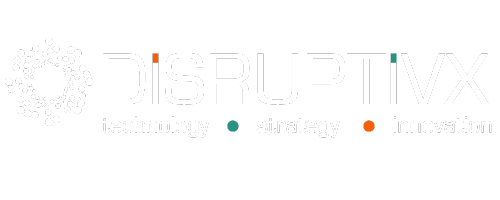The rapid advancement of artificial intelligence (AI) and automation technologies has brought about a significant transformation in the enterprise landscape. In particular, adaptive and generative AI has emerged as a powerful tool that can revolutionise core business processes, leading to improved efficiency, productivity, and overall digital transformation. In this article, we will explore the potential of adaptive and generative AI in optimising enterprise processes and driving innovation across various domains.
The Rise of Adaptive and Generative AI
Adaptive and generative AI technologies have gained considerable attention in recent years due to their ability to learn, adapt, and generate valuable insights. These technologies leverage large language modules (LLMs) to process and understand vast amounts of data, enabling businesses to make data-driven decisions and automate repetitive tasks.
According to a report by MarketsandMarkets, the global AI market is projected to reach $1,345.2 billion by 2030, with a CAGR of 36.8% from 2023 to 2030. This growth is indicative of the increasing adoption of AI technologies, including adaptive and generative AI, across various industries.
Optimising Core Processes with Adaptive and Generative AI
Adaptive and generative AI has the potential to transform core processes within an enterprise, leading to enhanced efficiency, cost savings, and improved customer experiences. Let’s explore some of the key areas where adaptive and generative AI can be leveraged to optimise processes.
Finance and Risk Management
In the finance industry, adaptive and generative AI can streamline financial operations, automate risk assessment, and improve decision-making processes. These technologies can analyse vast amounts of financial data, detect anomalies, and provide real-time insights to help financial institutions identify potential risks and make informed decisions.
By using adaptive and generative AI, businesses can optimise financial forecasting, automate compliance processes, and detect fraudulent activities. This not only improves operational efficiency but also reduces the risk of financial loss and enhances overall risk management strategies.
Supply Chain and Logistics
The supply chain and logistics industry can greatly benefit from the implementation of adaptive and generative AI technologies. These technologies can optimise inventory management, automate demand forecasting, and enhance supply chain visibility.
By leveraging adaptive and generative AI, businesses can improve supply chain efficiency, reduce costs, and minimise disruptions. AI-powered algorithms can analyse historical data, market trends, and customer demand to optimise inventory levels, streamline logistics operations, and ensure timely delivery of goods.
Sales and Marketing
Adaptive and generative AI can revolutionise sales and marketing strategies by providing personalised customer experiences, optimising marketing campaigns, and automating lead generation processes. These technologies can analyse customer data, predict customer behavior, and generate targeted marketing content to enhance customer engagement and drive sales.
By using adaptive and generative AI, businesses can gain valuable insights into customer preferences, automate sales processes, and improve customer satisfaction. AI-powered chatbots and virtual assistants can also enhance customer support by providing real-time assistance and personalised recommendations.
Human Resources and Talent Management
Adaptive and generative AI technologies can transform human resources and talent management processes by automating recruitment, optimising workforce planning, and enhancing employee engagement. These technologies can analyse job descriptions, candidate profiles, and performance data to identify suitable candidates, streamline hiring processes, and improve talent retention strategies.
By leveraging adaptive and generative AI, businesses can optimise workforce allocation, identify skill gaps, and provide personalised learning and development opportunities for employees. This not only improves employee satisfaction but also enhances overall organisational performance.
Governance and Compliance
In regulated industries such as healthcare, banking, and insurance, adaptive and generative AI can play a crucial role in ensuring compliance with regulatory requirements. These technologies can automate compliance processes, detect potential risks, and provide real-time monitoring and reporting capabilities.
By using adaptive and generative AI, businesses can reduce the risk of non-compliance, enhance data security, and improve governance practices. AI-powered algorithms can analyse vast amounts of data, identify anomalies, and generate actionable insights to help businesses meet regulatory standards.
Challenges and Ethical Considerations
While the potential benefits of adaptive and generative AI are significant, it is important to consider the challenges and ethical implications associated with these technologies. AI algorithms are susceptible to biases and may unintentionally perpetuate existing inequalities or generate misleading results. Therefore, it is crucial for businesses to implement ethical guidelines and ensure transparency and accountability in AI decision-making processes.
Additionally, the widespread adoption of adaptive and generative AI technologies may lead to concerns related to data privacy and security. Businesses must implement robust data protection measures and comply with relevant regulations to safeguard sensitive information.
Conclusion
The future of adaptive and generative AI in enterprise is promising, with the potential to revolutionise core processes and drive digital transformation. By leveraging these technologies, businesses can optimise finance and risk management, streamline supply chain and logistics operations, enhance sales and marketing strategies, improve human resources and talent management, and ensure compliance with regulatory requirements.
To fully harness the power of adaptive and generative AI, businesses must address the challenges and ethical considerations associated with these technologies. By implementing ethical guidelines, ensuring transparency, and prioritising data privacy and security, businesses can unlock the full potential of adaptive and generative AI while building trust with their stakeholders.
As we continue to embrace the digital era, adaptive and generative AI will undoubtedly play a pivotal role in shaping the future of enterprise and driving innovation across industries. By embracing these technologies and leveraging their capabilities, businesses can stay ahead of the curve and position themselves for success in the rapidly evolving digital landscape.


Leave a Reply